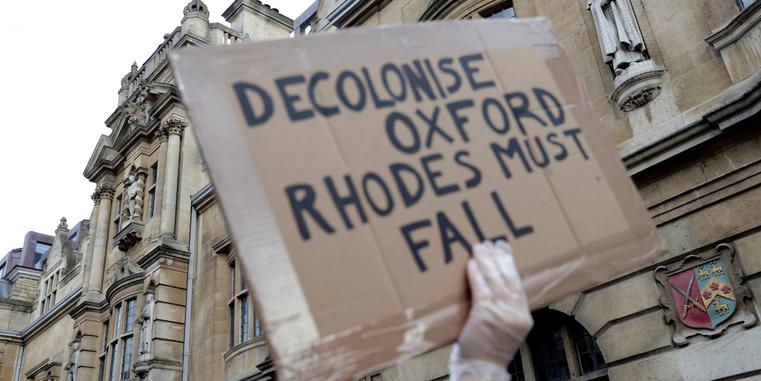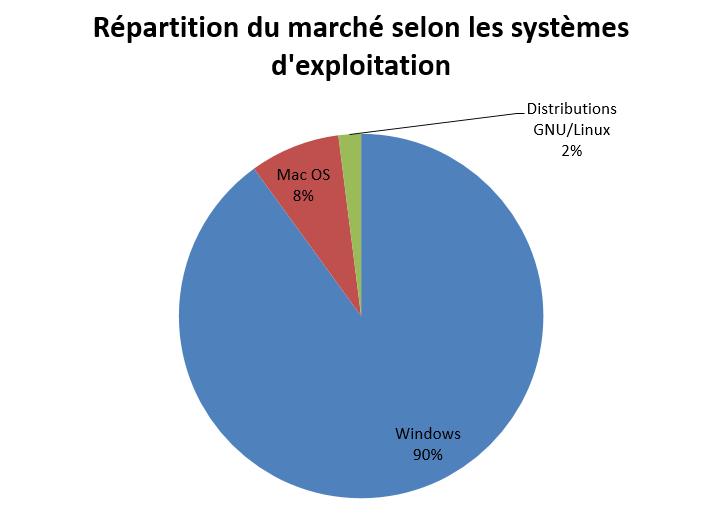Should we be afraid of the "woke" culture?
"Wokism", "cancel culture", "critical social justice", "gender theory", "queer theory", "postcolonial theory", "postmodernism", "deconstruction", "intersectionality"... all these terms have invaded for some time the media, the social networks, creating violent polemics of which a majority of people do not always understand the stakes.
Coming from the United States, this multifaceted and militant movement aims to denounce on behalf of minorities the patriarchal and Western domination, sexist and imperialist, which has structured history until today. In addition to a corpus of theoretical texts and the creation of new departments in universities such as "gender studies"..., it manifests itself in militant actions such as, for example, the unbolting of statues of "great men" who were in their time as slaves or the demand for the removal of certain passages from classic literary works, considered racist or sexist.
This new culture, which calls itself "woke" (awakened), is shaking up traditional movements that fight in the name of equal rights against racism or sexism by expressing themselves in a democratic and progressive framework. It rejects all mediation, all debate, all dialogue, considered from the outset as old moons that only perpetuate and reinforce injustices.
The world of ideas only progresses through exchange
But that is a problem. The world of ideas only lives and progresses through exchange. This is an achievement of the ideals of the Enlightenment, based on reason and universalism, human rights and democracy which are thus indicted. Without the possibility of exchanging arguments, there remains only a dialogue of the deaf if not violent confrontation.
It is precisely from this heritage of the Enlightenment that the writer Helen Pluckrose and the mathematician James Lindsay make a critical analysis of this new ideology in their work "The new intellectual impostures" (ed. H&O) by showing "how the theories on identity, gender, race corrupt the university and harm society" as the subtitle clearly indicates.
In addition to the critical analysis of "woke" theories - Postcolonial Theory, Queer Theory, Critical Theory of Race and Intersectionality, Feminism and Gender Studies, or Critical Studies on Disability and Corpulence -, which constitutes the main part of the work, the authors update the intellectual origins of this protean movement which are rooted in the intellectual soil of the "French Theory" which initiated the postmodern philosophy which began to emerge from the late 1960s.
These philosophers have in common to have questioned the hidden faces of progress, reason, democracy that characterizes the Enlightenment. Jacques Derrida proceeded to the "deconstruction" of Western reason, Michel Foucault showed that all knowledge is a form of power, Jean Baudrillard that the world of objects is only a world of simulacra, Gilles Deleuze rehabilitated the schizophrenic and Jean-François Lyotard showed the impossibility of dialogue because of an irreducible "difference". The latter is also the author of "The Postmodern Condition" where he observed that the various "grand narratives" such as Marxism had lived, capitalism having won to such an extent that it was impossible to situate oneself outside of him. To Karl Marx, they preferred Friedrich Nietzsche, and gave language and aesthetics a central role instead of politics.

relativism and constructivism
Disenchanted with modernity, these postmodern authors argued in favor of philosophical relativism - the notion of truth does not exist - resulting in a constructivism that sees the notion of human nature as a social fiction. Such a terrain legitimizes all claims - since everything is equal - and the questioning of any human classification because of the plasticity of the individual, since there is no common human nature.
Pluckrose and Lindsay have no great difficulty in showing the inconsistencies of these positions, especially since the escalation in radicalization favors the proliferation of chapels and a theoretical inflation that makes the objectives sought, the political framework more and more incomprehensible. desired, the desired reforms.
If the two authors have few illusions about the possibility of finding common ground in the face of their adversaries, they take great care to distance themselves from a conservative or even reactionary criticism that they reject. On the contrary, they justify in conclusion their refutation of "critical social justice" from an intellectual and political position that claims to be liberalism, which in the United States corresponds more to the position of Bill Clinton or Barack Obama than to neoliberalism. . Some - like the prefacer Alan Sokal, who in 1995 had published with the Belgian physicist Jean Bricmont "Intellectual impostures" - will see in it a shortcut to defenders of capitalism. It would be reductive.
We will understand it all the better when reading the "Desert of criticism" by the philosopher Renaud Garcia. The book is a revised and expanded version of a long preface as a review since the publication of the first edition in 2015. Renaud Garcia, agrégé and doctor of philosophy, inscribes his reflection in the anarchist tradition - he devoted his thesis PhD on the work of Pierre Kropotkine (1842-1921), Russian geographer and anarchist. Like Pluckrose and Lindsay, he starts from the analysis of the philosophy of postmodernism - in particular Jacques Derrida and Michel Foucault - but also from the observation that he was able to make as an activist to see how much these theories which influence the "woke" culture result in undermining and dividing the protest movement of the various powers. The most original part of the work deals with the discussion of the theses of post-anarchism, little known in France because little translated, this current coming mainly in this case also from the United States and Canada.
Renaud Garcia shows how radical hypercriticism leads not only to an "intellectual desert" but also to a political impasse. Because unlike Pluckrose and Lindsay, the philosopher also develops a critique of capitalism which has entered a new phase with the generalized digitization of all aspects of human life. One could judge Garcia's observation too pessimistic, but in the preface he wrote for this new edition, he lists a number of examples which show how much the situation has only worsened since the observation he made there. six years ago. Not only did his work not have the expected effect - namely to open up a debate in militant circles - but on the contrary it earned him inconvenience, such as the cancellation or disruption of his conferences, not to mention verbal attacks.
Keep the terms of a chat
However, there remains one point in common between the two books: Lindsay and Pluckrose, like Garcia, defend the need to maintain the conditions for a discussion where everyone can develop their arguments and express disagreements. But today many intellectuals, researchers, activists censor themselves. Conferences are cancelled, people are harassed on social media, professors are fired or pushed out because they simply dare to object to the expectations of "critical social justice.
The worrying consequence is that the space devoted to freedom of expression finds itself more and more reduced between a reactionary populism and a woke dogmatism, from which Alan Sokal wonders if ultimately they do not feed one and the other.
______________
Helen Pluckrose and James Lindsay "The triumph of intellectual impostures", preface by Alan Sokal, translated from English (United States) by Olivier Bosseau and Peggy Sastre, 448 pages, 23 euros.
Renaud Garcia "The Desert of Criticism" (2nd revised and expanded edition), Editions de l'Echappée, 192 pages, 12 euros.
Robert Jules7 mins
Share :







